Real Property
Adding Real Value to Your Real Property Transactions
We provide sound guidance to businesses and individuals involved in commercial or residential real estate transactions throughout the Sacramento and Roseville areas. We represent commercial, multi-family and single-family residential builders, developers and investors of all sizes, and assist with landlord-tenant disputes as well. Our goal is to minimize risk, ensure thorough documentation, and facilitate a prompt closing without unnecessary complications.
At Yee Law Group Inc., we have decades of experience successfully guiding clients through commercial and residential real estate transactions, working with clients on site selection, due diligence, contract negotiations, leasing, mortgage financing and other secured lending, mortgage foreclosures, and loan workouts.
We assist clients throughout the Sacramento area with a wide range of real estate needs, including:
- Build-outs
- Buying and selling
- Retail and industrial properties
- Development contracts
- Construction financing
- Zoning
- Purchase financing
- Environmental compliance
- Franchise agreements
- Property management agreements
- Landlord-tenant issues
Yee Law Group Inc.: Experienced Sacramento/Roseville Real Estate Attorneys
At Yee Law Group Inc., we have decades of experience successfully guiding clients through commercial and residential real estate transactions.
What is an easement?
An easement is the legal right use the property belonging to someone else for a specific purpose. For instance the gas company may have an easement to run pipes on your property, or the phone company to build a tower on your property. Your name will be on the deed, so you will remain the owner of the property, but the said party will have the right to use your property for whatever purpose may be needed. Easements can be in writing or through verbal communication. They should be referred to in title papers or property deeds; both of which are prepared by a title company and/or real estate lawyer.
An easement is part of the land; thus, it generally, does not change when the property is sold and purchased by a new party. This means any subsequent owner will have the obligation to keep the easement in place. Before you purchase a house, it is important to understand whether or not the property has any easements attached.
There are a number of different types of easements. These include the following:
Utility Easement
As the most common type of easement, these are almost always legally drafted documents that have been given to a utility company and or municipality. These easements may be described in a deed or title, but not always. The existence of a utility easement may not have daily effects, or even be noticeable. You generally can landscape, live, and build on the property so long as the easement is not affected. If you have a utility easement on the property, but don’t know where it is, you can call the utility company, visit your city hall, or consult a real estate lawyer.
Private Easements
The previous owner of a property might sell an easement to another private party. For example, the owner might allow the neighbor to use their driveway to get to their own house, or grant the neighbor access to solar power or the sewer.
If the property you are buying has any private easements, it is recommended to get a copy of the original easement documents. You should also know where they are, what your rights are, and what the private party’s rights are. This is important because private easements can limit you in what you can do to your property. For example, if your neighbor has a solar easement, you may not be able to build or landscape on certain areas of the property because you will block the sunlight to your neighbors solar panels. If you are unable to locate the easement papers, but have been told an easement exists, you may want to talk with real property lawyers in Sacramento, CA.
Easements by Necessity
Sometimes easements are not written; rather they are verbal. In this case, the easement may be necessary; therefore, no legal agreement needs to be drafted. For instance, the law grants homeowners the right to access their home. If the only way to do this is by crossing through your property, it may be an easement by necessity.
Prescriptive Easements
Prescriptive easements are created when another party uses your land for access; such as accessing the beach or a shortcut. Prescriptive easements are valid for a period of time; usually 10-20 years. These type of easements can be complicated and their rules vary by state. You should consult a real property lawyers in Sacramento, CA to learn more.


